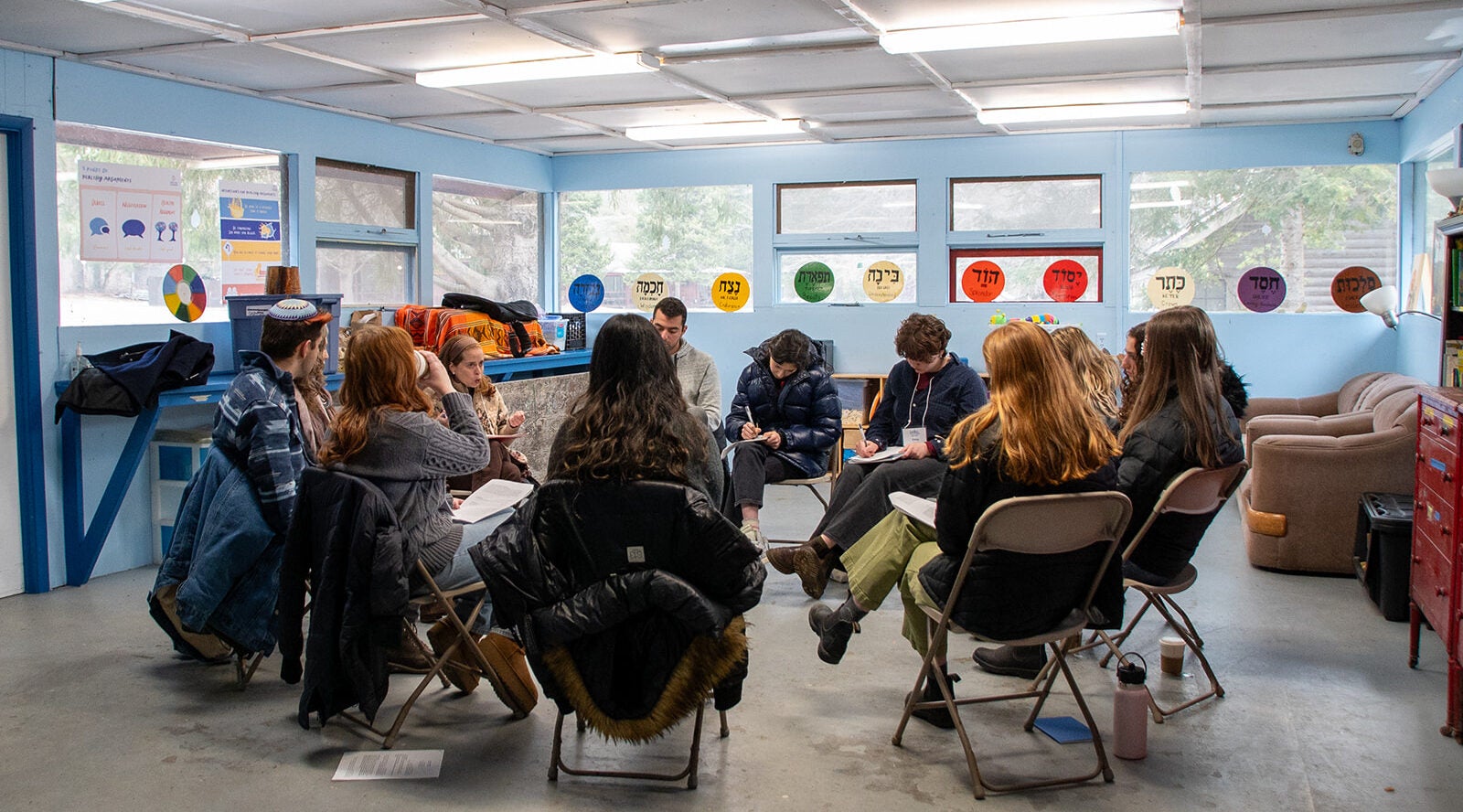The past two years have been particularly challenging for Jewish college students. Our campuses, which should be places of curiosity and critical exchange, have too often become arenas of polarization. As upperclassmen, Ari at Harvard and Maya at McGill, we have watched peers feel trapped between two extremes: to take a strident side on nuanced conflicts, or to stay silent and withdraw from the conversation all together. Charlie Kirk’s recent assassination has further intensified the polarizing atmosphere. Frighteningly, some have seen his death as proof that civil discourse and free speech are impossible to achieve.
For students like us who care deeply about pluralism, this climate has felt especially isolating.
Even before Kirk’s assassination a number of university administrators were calling for pluralism and increasing investments in dialogue training. In fact, Barnard College President Laura Ann Rosenbury recently wrote an op-ed in the New York Times describing her college’s efforts to offer “courses and programs on civil discourse and dialogue.” While we’re heartened by this trend, we also recognize this isn’t the norm across universities and we’ve also come to see its limits. A mandatory workshop on “how to speak to one another” may help students avoid pitfalls but skills alone are not enough to solve the problem of polarization.
What’s missing on campuses across the country are sustained spaces where students learn to hold disagreement within a community. Over the past year, both of us have found great comfort in Jewish learning, through which we are reminded that intellectual and communal life can be most rich and vibrant when practicing the ethic of pluralism.
Jewish life has always included debate, diversity, and dialogue. The Talmud preserves arguments not for their resolution, but because the disagreements themselves are valuable. As our sages put it, a dispute for the sake of heaven is one that sustains community even when consensus is impossible. Disagreement can be a bond, not a rupture.
What Jewish wisdom has helped us recognize is that the key to pluralism is prioritizing relationships over the need to be right. We find ourselves concerned that this message is getting lost in the rhetoric on campus and in Jewish spaces when, all too often, the response to disagreement is to throw more “facts” at the other side, to win the debate.
Last school year, we each attempted the Sisyphean task of getting those who disagree on campus into one room to no avail. It was exhausting. No matter how close we got to encouraging open conversations, at the last moment, a social media post, national or international news event or protest would dissuade participants that such a conversation was desirable or even worthwhile. The trauma and upheaval of the Israel-Hamas war further enhanced a sense of fear, grief, alienation and anger among and between our Jewish peers.
What renewed our spirits and resolve was jointly participating in a program created for Jewish college students called Campus Commons. The experience of being in a mixed group of Jewish students from across North America — politically and religiously — was inspiring and enlivening, creating a trusting community with peers who, back on our college campuses, circulate in different spheres from ours. It meant that when tensions naturally surfaced – not through force or as an illustrative exercise — they were met with care rather than defensiveness.
Being in a pluralistic Jewish community and studying Jewish texts together gave us the courage and self-awareness to examine our own personal barriers in conversation. For the first time in a long time, we felt able to express pain without being dismissed or misunderstood.
College campuses have the potential to, once again, become spaces where students can cultivate meaningful relationships before diving into debate. This is especially true of Jewish spaces on campus which are in desperate need of a relationship reset. More resources should be given to trusted campus professionals and peer leaders who can serve as relationship-builders on campus and are best positioned to foster pluralism in these environments. This includes Jewish professionals and Jewish student leaders, who are uniquely situated to cultivate pluralistic environments and initiatives, both within the Jewish community and beyond it.
At Harvard Hillel, Ari started the “Oy-ntology Club,” a Friday-morning bagels-and-texts group on Jewish ethics. The series opened with thorny but relatable topics — how to hold close friends accountable without becoming responsible for them — and, after a few months of steady meetings and goodwill, turned to the morality of the Israel-Hamas war. This format worked and was rooted in two practices gleaned from the Campus Commons experience: 1) chevruta, or paired Jewish study, lets students meet through a shared text, giving a common entry point and slowing reactive takes; 2) beginning on common ground and, as trust builds, easing into harder questions. Regardless of the format, technology-free and off-the-record spaces do make a difference. When students can try on views without fearing they’ll be broadcast online, diversity in perspective and the potential to become friends is much easier to come by.
We hope university administrators and community leaders will go beyond “dialogue skills,” giving students opportunities to deepen relationships and build community. Our participation in a Jewish program that prioritizes pluralism and exposed us to Jewish learning related to the values of pluralism, restored our hope that things can be different; we can act together without needing to think alike.
JTA has documented Jewish history in real-time for over a century. Keep our journalism strong by joining us in supporting independent, award-winning reporting.







